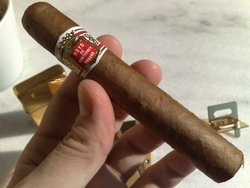Cuba cigar industry running out of puff
- Submitted by: admin
- national
- Business and Economy
- 06 / 25 / 2010

SMOKING bans and the recession are hitting Cuba's cigar industry, signalling a hostile era for a product whose mystique once captivated the likes of Winston Churchill, John F. Kennedy and Fidel Castro.
The latest harvest of 22.4 million leaves was 14 per cent down on last year, according to figures published this week, continuing a decline. The number of cigars produced for export plunged from 217 million in 2006 to just 73 million last year.
''There was a reduction in planting due to limitations in resources caused by the economic crisis,'' reported Guerrillero, a Communist Party newspaper in the tobacco-growing western province of Pinar del Rio. The amount of land devoted to tobacco fell 30 per cent last year.
A drop in the number of airline passengers has hit duty free sales, which comprises a quarter of the market. Anti-smoking laws have also cut sales. Spain, the top export market, banned smoking in offices, shops, schools, hospitals and on public transport in January. Smoking-related illnesses kill about 50,000 Spaniards each year.
Habanos SA, a joint venture between Cuba and the British company Imperial Tobacco Group, registered an 8 per cent fall in overseas sales last year, said Simon Evans, an Imperial Tobacco spokesman.
''This was largely due to the impact of the global recession on consumers,'' he said.
''There has been an impact following the introduction of smoking bans, but this tends to be an initial dip in consumption which ameliorates over time.''
Cuban premium bands such as Montecristo, Cohiba and Partagas dominate world market share with 70 per cent of sales. In the US, which has banned nearly all trade with Cuba since 1962, Cuban cigars find a way in.
Pinar del Rio's humidity and slightly sandy soil proves an ideal environment for the kinds of tobacco used in Cuban cigars. Leaves are fermented at least twice and aged for months, even years. Two types of leaves used in Cohibas, a flagship brand founded in 1966 at Dr Castro's behest, are fermented a third time.
Connoisseurs say Nicaraguan and Honduran cigars, which emulate Cuban hand-rolling techniques, can be equally smooth, but lack the romanticism of those from Cuba.
Churchill, a fan of Romeo y Julieta, had a long, fat variety named after him in 1947.
Dr Castro, who famously survived a CIA assassination plot involving an exploding cigar, liked to be photographed with a cigar clamped between his teeth, but he quit in 1985 for his health.
RORY CARROLL
June 25, 2010
Guardian News & Media
Source: www.brisbanetimes.com.au
Comments